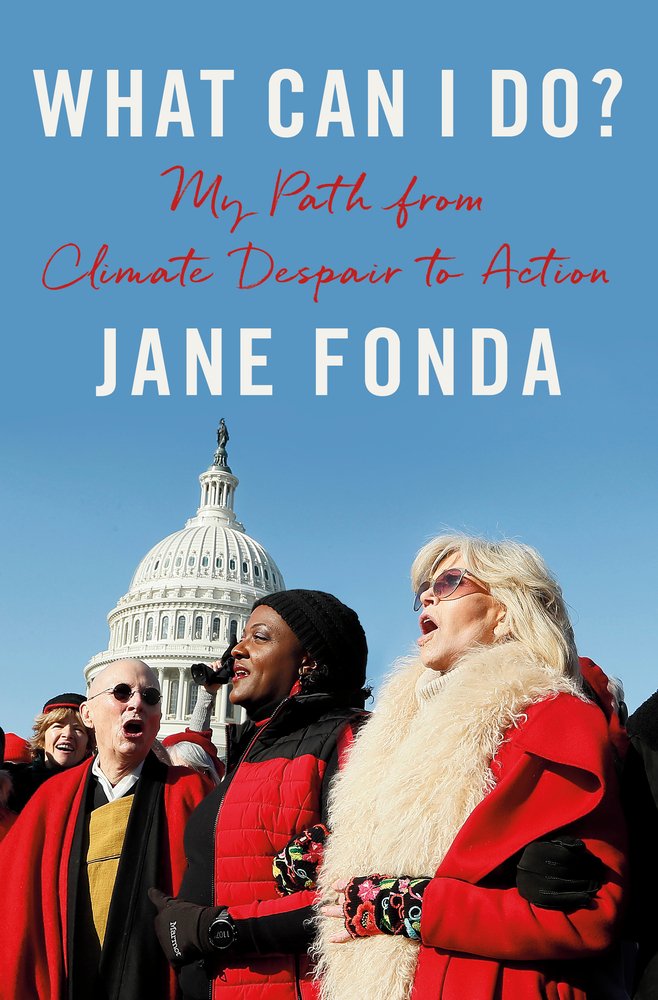Inside Jane Fonda's First Fire Drill Fridays Arrest
"I was doing what I had wanted: putting my body on the line and aligning myself fully, body and spirit, with my values."
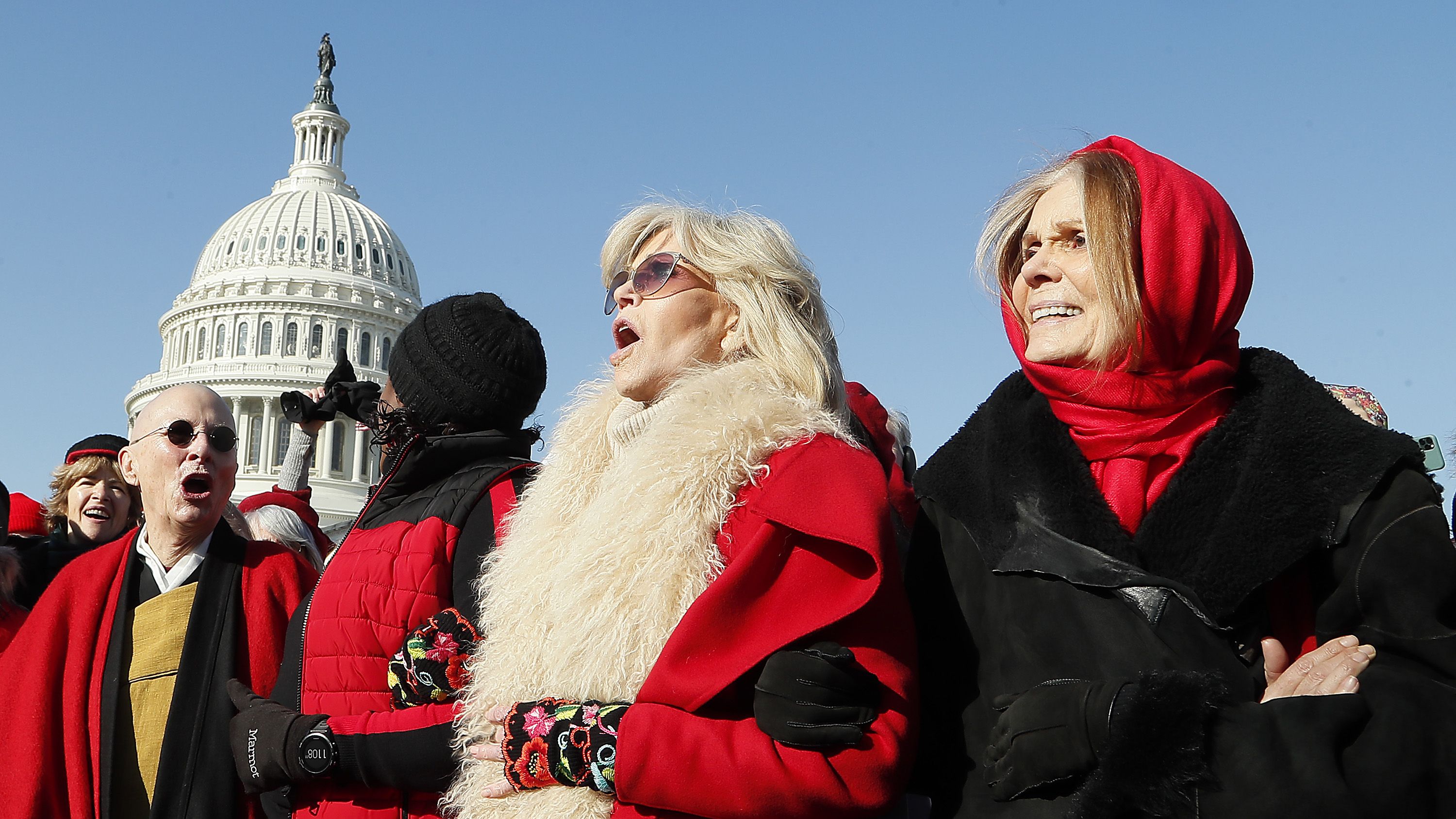
Last year, actor and activist Jane Fonda moved to Washington, D.C., and began leading weekly climate change demonstrations known as Fire Drill Fridays. During the rallies, she would frequently get arrested for peacefully protesting in front of the Capitol. In an exclusive excerpt from her new memoir, What Can I Do?: My Path from Climate Despair to Action (out today), Fonda reflects on her first Fire Drill Friday arrest in October 2019—and the moment she realized this is exactly what she's meant to be doing.
When the rally was over at noon, we marched behind the big “Fire Drill Friday” banner, chanting, “Tell me what democracy looks like! This is what democracy looks like! The seas are rising and so are we!”
We marched past a line of police cars toward the Capitol steps, the press in front of us walking backward, occasionally tripping and running into things. The line of about ten police officers standing on the steps began to move to the side to make room for us. They were well practiced. There were around sixteen of us who mounted the steps and turned around to face the small crowd and media people, which was being pushed back by another line of police. “Move back, people. Move all the way back.”
And soon there was a wide distance between those of us risking arrest and the others, though we all kept chanting. My step-granddaughter, Vasser, was right next to me along with Carroll Muffett, director of the Center for International Environmental Law; Steve Kretzmann, director of Oil Change International; Wendy Fields, director of Democracy Initiative; Medea Benjamin with CODEPINK; the twenty-four-year-old climate activist Sebastian Medina-Tayac; Annie Leonard, director of Greenpeace USA; the Greenpeace staffer Madeline Carretero; and Sandra, the poetic biologist.
The head police officer gave us the first warning that we must leave or risk arrest. We kept chanting. Then a second warning. A few people left, but we kept chanting. The final warning, and that was it. One at a time, officers secured our hands behind our backs with white plastic zip ties. They hurt.
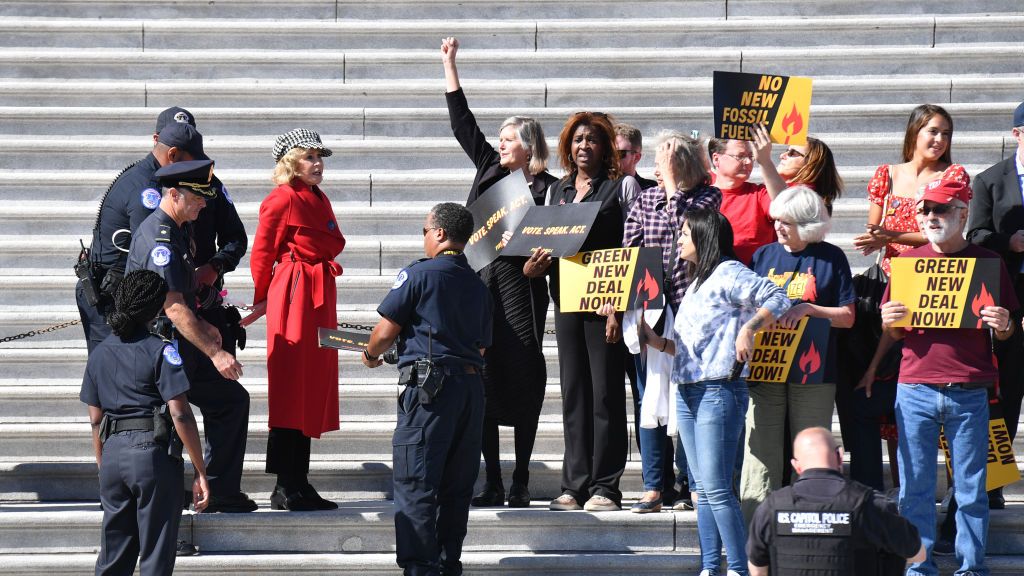
Jane Fonda getting arrested on the steps of the Capitol on October 11, 2019.
I wasn’t scared. I had been arrested before, but this was my first arrest for civil disobedience. In 1970, I had been arrested in the Cleveland airport returning from Canada, where I had just begun a national speaking tour about the atrocities of the Vietnam War.
Back then, the arresting officer told me the Nixon White House had ordered my arrest. The police took my notebooks and my address book and dozens of little plastic bags containing the vitamins I took with each meal. The charge was drug smuggling. I was put in a cell with a woman in the throes of drug withdrawal. I didn’t know what was going to happen to me.
Stay In The Know
Get exclusive access to fashion and beauty trends, hot-off-the-press celebrity news, and more.
This time was different. I stood chanting on the steps of the Capitol, energized. I was doing what I had wanted: putting my body on the line and aligning myself fully, body and spirit, with my values. I felt empowered. The people around me seemed to feel the same. As each of us was taken by an officer to the waiting vans, people cheered, clapped, and chanted in support. It felt good.
When I arrived, several women were already sitting in a row on one side in the back of the van, which was divided in two. Even though I’m strong, it was a high step up with nothing to hold on to and my hands cuffed behind my back. The officer helped by boosting me up by my behind, and I flashed onto a scene in the sixth season of Grace and Frankie when Peter Gallagher had to help me into an SUV the same way because Grace is too old to do it on her own. Oh, well, Fonda. This is your new reality.
It took an inordinate amount of time before we finally arrived at the police station, where we were off-loaded and taken inside. There, we were searched, and everything we weren’t wearing, including glasses that weren’t prescription, identification, and money, was put in a clear plastic bag and marked with our name. Given what we were committing civil disobedience for, the extensive use of plastic was glaring. My red coat was so new I hadn’t yet realized it had real pockets that had to be unstitched open. Hence, my money and driver’s license were in my bra, which the officers seemed to find amusing. They had to release me from the cuffs so I could get them.
The thin white plastic handcuffs were cut off, tossed, and replaced by thicker black ones that screwed into place and were apparently recycled after use. Then we were led into another room containing two cells, each painted hospital green, each with a sleek metal slab of a bed/bench and an all-metal toilet. There was nothing that could be removed or broken off. No sharp corners.
In the cell with me were Vasser, Sandra, Medea, and Wendy Fields. I knew that Vasser’s father was nervous about her risking arrest, and I was happy and proud that she felt empowered by her decision to do it. Karen, Annie, Maddy, and the other women were in the next cell over.
While I did wall squats (hey, you gotta seize the opportunity when you can), we talked about climate’s connection to many things, from democracy to war to health, and I got more ideas for upcoming teach-ins.
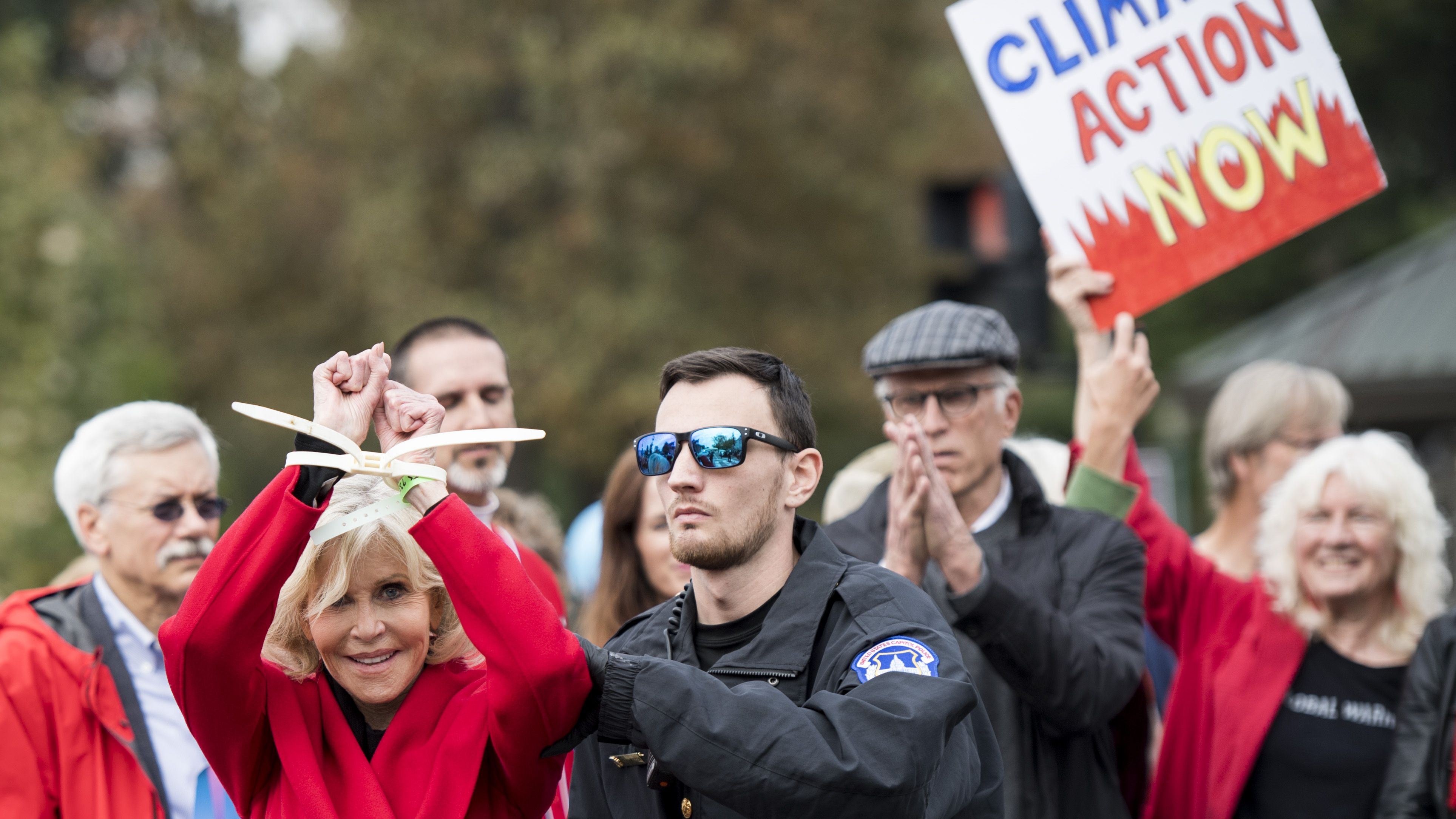
Jane Fonda getting arrested again at the Capitol on October 25, 2019.
Turned out that both Medea and Sandra had known my ex the late Tom Hayden. Sandra told me that back in 1965, students at the University of Michigan had been protesting the escalation of America’s involvement in the Vietnam War and of military research being done on campus. Tom, who was the editor of The Michigan Daily at the time, and three thousand other protesters took over Angell Hall, a kind of hallowed place on campus. All night long they held seminars and gave speeches about the history and culture of Vietnam and about Lyndon Johnson’s bombing campaign. And right then and there, it was labeled a teach-in, a new concept. Instead of a walkout or a sit-in, this was a teach-in. Soon the idea of teach-ins spread to other schools.
“In 2015, fifty years after that original teach-in,” Sandra recounted, “Tom and I were invited back to a teach-in on climate change. It was held in the same hall as the original teach-in, Angell Hall. I believe that was Tom’s last big speech before he died.”
This story brought up so many emotions for me. I thought about the fact that next Thursday we would have our first teach-in. I was happy for that link to Tom. I missed Tom and wished he could be with us now to guide and advise us. Strategy was always Tom’s strength. I wondered what he’d think about me being in this jail cell with Sandra and Medea following civil disobedience. I know he would have loved the fact that my step-granddaughter was in there with me. He always favored cross-generational organizing.
To be truthful, though, I had been privately wondering if I could have gotten up the nerve to move to D.C. and launch the Fire Drill Fridays were Tom still alive. I had always been in awe of his fierce intelligence and broad movement-building experience, always feeling myself the student to his teacher. Had he been the least bit skeptical of my idea, which he often was for reasons that sometimes felt arbitrary and personal, I might well have backed off. But then again...maybe not. I was also aware of how much more confident I had grown in the thirty years since Tom and I divorced. Maybe I would have been capable of laughing it off as part of Tom’s quirky ego that could no longer intimidate me.
After three hours or so, people started to be processed out, but I was unable to see who went first. An officer came to talk to Medea about the fact that this was her third arrest of the year and that they were considering keeping her overnight. Instead, they gave her a court date to appear before a judge and let her go, telling her that if she had another arrest before her court date, she would definitely spend a night or two in jail. I was learning the rules that would come in handy in the coming months.
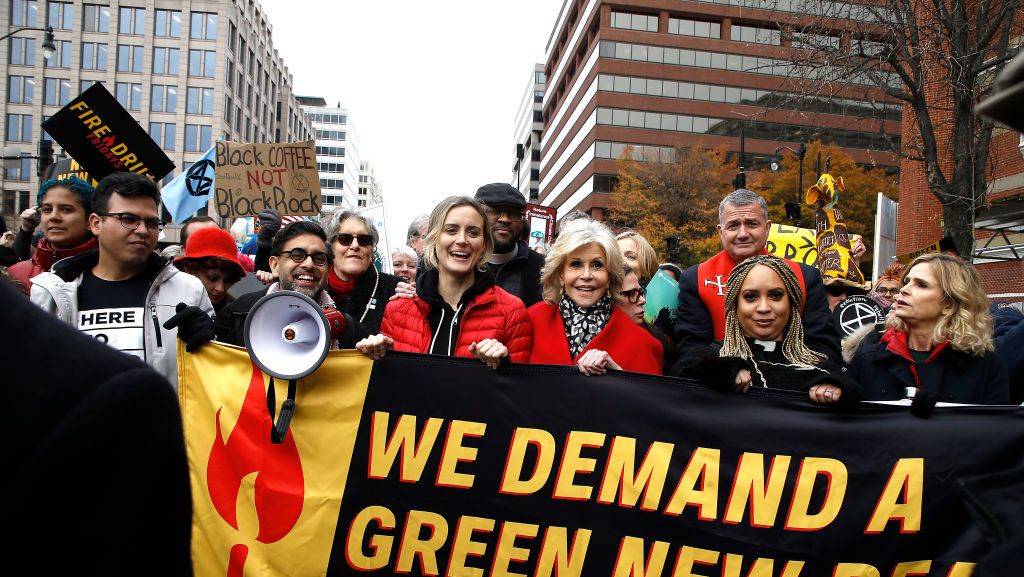
A Fire Drill Friday protest held on December 6, 2019, in Washington, D.C.
I was one of the last to be released, and as I sat in the cell alone, I had time to reflect on this action that we had hurriedly pulled together based on my sense of urgency the month before. I felt proud that we had done this. I loved the voices we included in this launch: respect for the native land, for youth, and for science. A good beginning but not nearly enough. There was so much more I wanted to learn about all the different topics we planned on covering. Where would we be a month from now? Two months from now? I was ready for that!
About four hours after we were brought into the cell, I was thumb printed, paid my $50 fine, and got my possessions back. Out I went into the glaring sunshine, where I saw the team, plus Debi, my assistant, Annie, Maddy, and Karen, all clapping and cheering and offering chips, tangerines, and water. I was surprised to see that people had waited, but Sam explained that this is what’s called jail support. I hadn’t expected it, all those people there to hug me and thank me for being willing to get arrested for the cause made it different and special. And for every one of our fourteen Fridays that involved arrests, rain or shine or frigid weather, jail support was always there, and in time, when I could no longer risk arrest, I would be part of it myself.
That day cemented for me how important it was to work across movements, to bring together people who work on democracy and women’s issues, indigenous issues, antiracism, peace, labor, and more. It’s not just a matter of good movement manners. We didn’t need to do that; we could have just started this on our own. But taking the time to engage people across movements makes us stronger. There is a saying: “If you want to go fast, go alone; if you want to go far, go together.” The more I was learning about the climate crisis, the more I knew that building a community was how we would grow the army that was needed to change the way this country does business—literally, and for the long haul.
As I thanked everyone for sticking around and started to leave, a Fox TV reporter showed up and stuck a mic in my face while his camera rolled.
“Why have you done this, gone to jail?” he asked with an edge in his voice. “To get you to cover climate,” I replied, and got into a waiting car.
From WHAT CAN I DO? My Path from Climate Despair to Action. Published by arrangement with Penguin Press, a member of Penguin Random House LLC. Copyright © 2020 by Jane Fonda.
RELATED STORIES
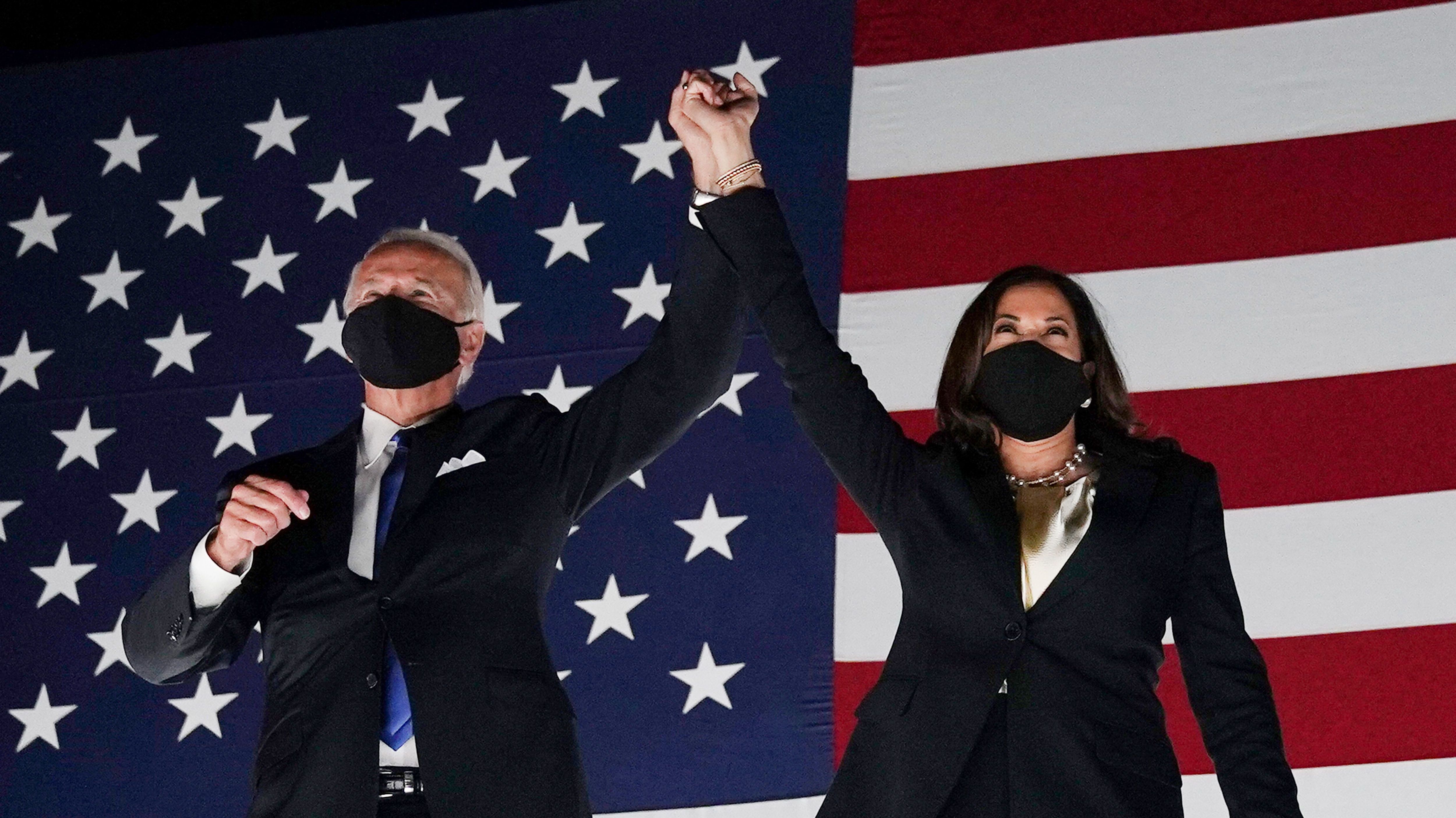

-
 After 25 Years, 'The Virgin Suicides' Is Still Influencing Artists Like Me
After 25 Years, 'The Virgin Suicides' Is Still Influencing Artists Like MeTo coincide with the film's anniversary, Mia Berrin from Pom Pom Squad reflects on what it's meant to her artistic journey.
By Sadie Bell
-
 The "Frightening" Easter Prank William Played on Eugenie
The "Frightening" Easter Prank William Played on Eugenie"Prince William has just stood on a chair and bitten the mouse's head off."
By Amy Mackelden
-
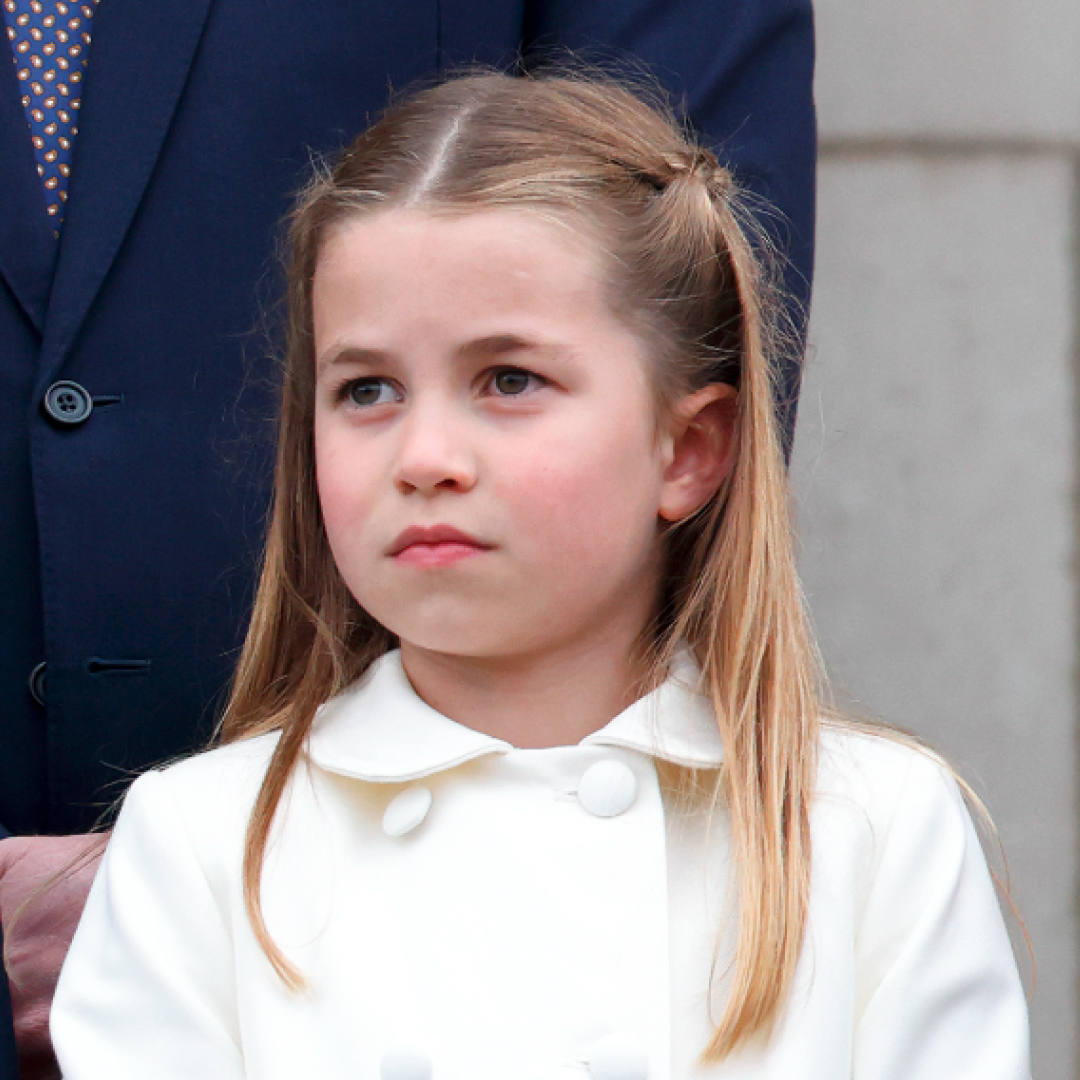 A Resurfaced Photo Reveals Charlotte's Royal Lookalike
A Resurfaced Photo Reveals Charlotte's Royal Lookalike"The Spencer genes are so strong."
By Amy Mackelden
-
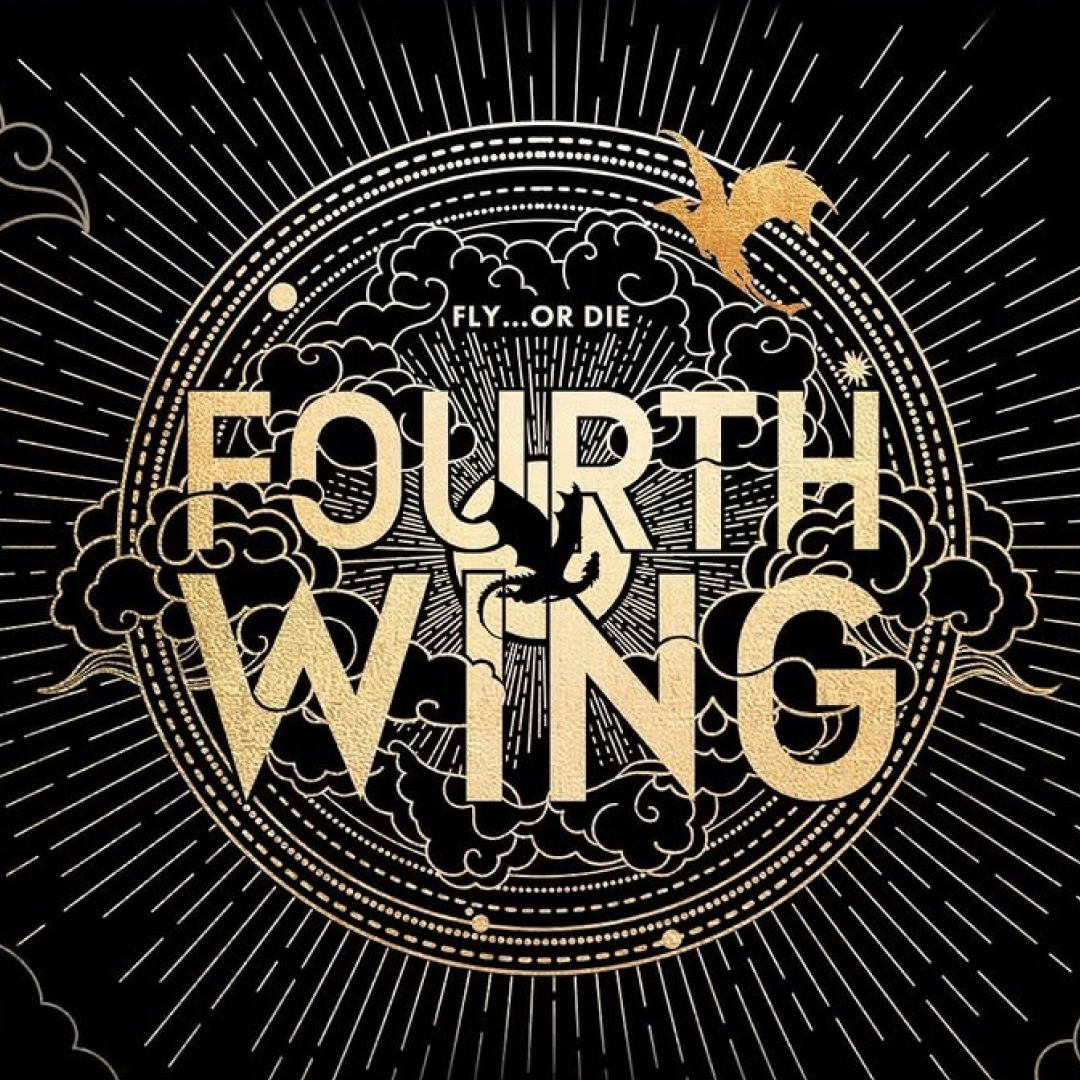 The 'Fourth Wing' TV Show: Everything We Know About the Series Adaptation
The 'Fourth Wing' TV Show: Everything We Know About the Series AdaptationRebecca Yarros's bestselling romantasy series is getting the Prime Video series treatment.
By Quinci LeGardye
-
 The 20 Best True Crime Books to Read in 2025
The 20 Best True Crime Books to Read in 2025These nonfiction titles and memoirs about serial killers and scammers are the definition of page-turners.
By Andrea Park
-
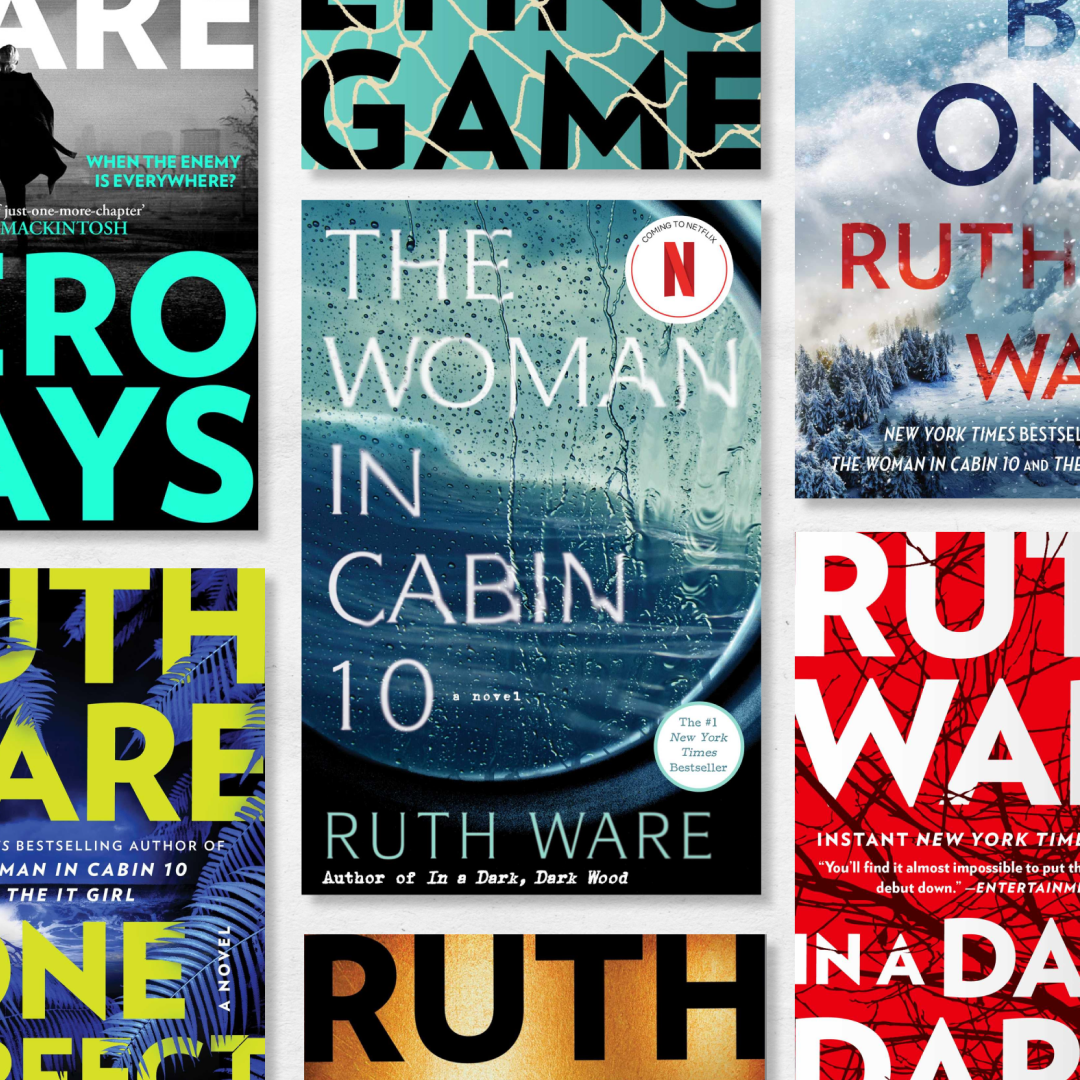 Every Ruth Ware Book, Ranked—From 'In a Dark, Dark Wood' to 'The Woman in Cabin 10'
Every Ruth Ware Book, Ranked—From 'In a Dark, Dark Wood' to 'The Woman in Cabin 10'Here's what you should read before her new thriller 'The Woman in Suite 11' hits shelves.
By Nicole Briese
-
 10 Books to Read for a Killer Vacation
10 Books to Read for a Killer VacationPack these novels about vacations gone very wrong on your next trip.
By Liz Doupnik
-
 The Melancholic Sound of Success
The Melancholic Sound of SuccessThe artist known as Japanese Breakfast opens up about finding her sound on a new album after experiencing whirlwind success.
By Sadie Bell
-
 Every Jennifer Weiner Novel, Ranked—From 'Good in Bed' to 'In Her Shoes'
Every Jennifer Weiner Novel, Ranked—From 'Good in Bed' to 'In Her Shoes'All hail the queen of beach reads!
By Nicole Briese
-
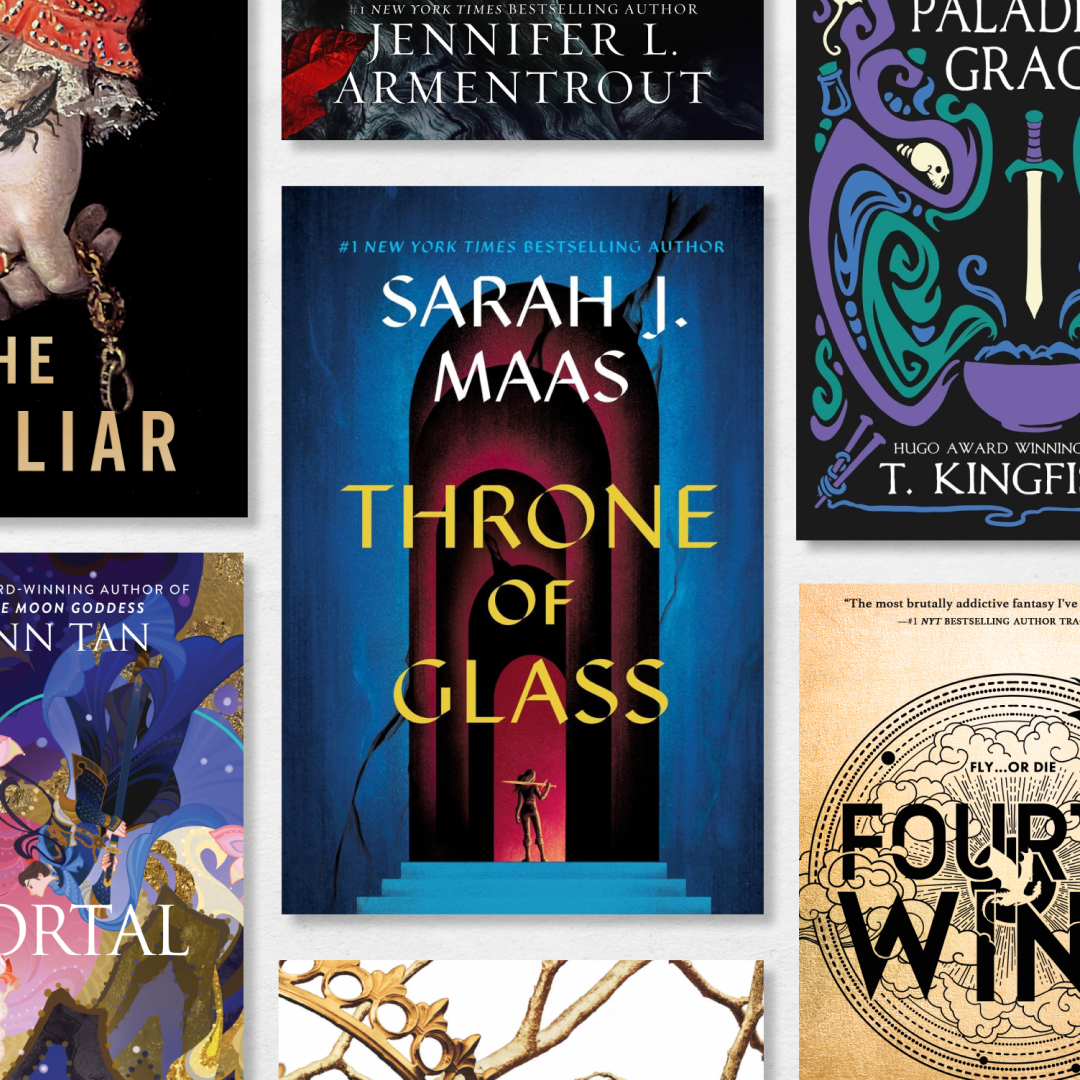 The 28 Best Romantasy Books to Read in 2025
The 28 Best Romantasy Books to Read in 2025Here's what to read when you've devoured the 'ACOTAR' and 'Empyrean' series.
By Andrea Park
-
 Mary Ellen Matthews Is the Woman Behind Every Portrait on 'Saturday Night Live' Since 1999
Mary Ellen Matthews Is the Woman Behind Every Portrait on 'Saturday Night Live' Since 1999The late-night show's resident photographer shares her favorite memories and insights from shooting all the talent who come through Studio 8H.
By Sadie Bell
